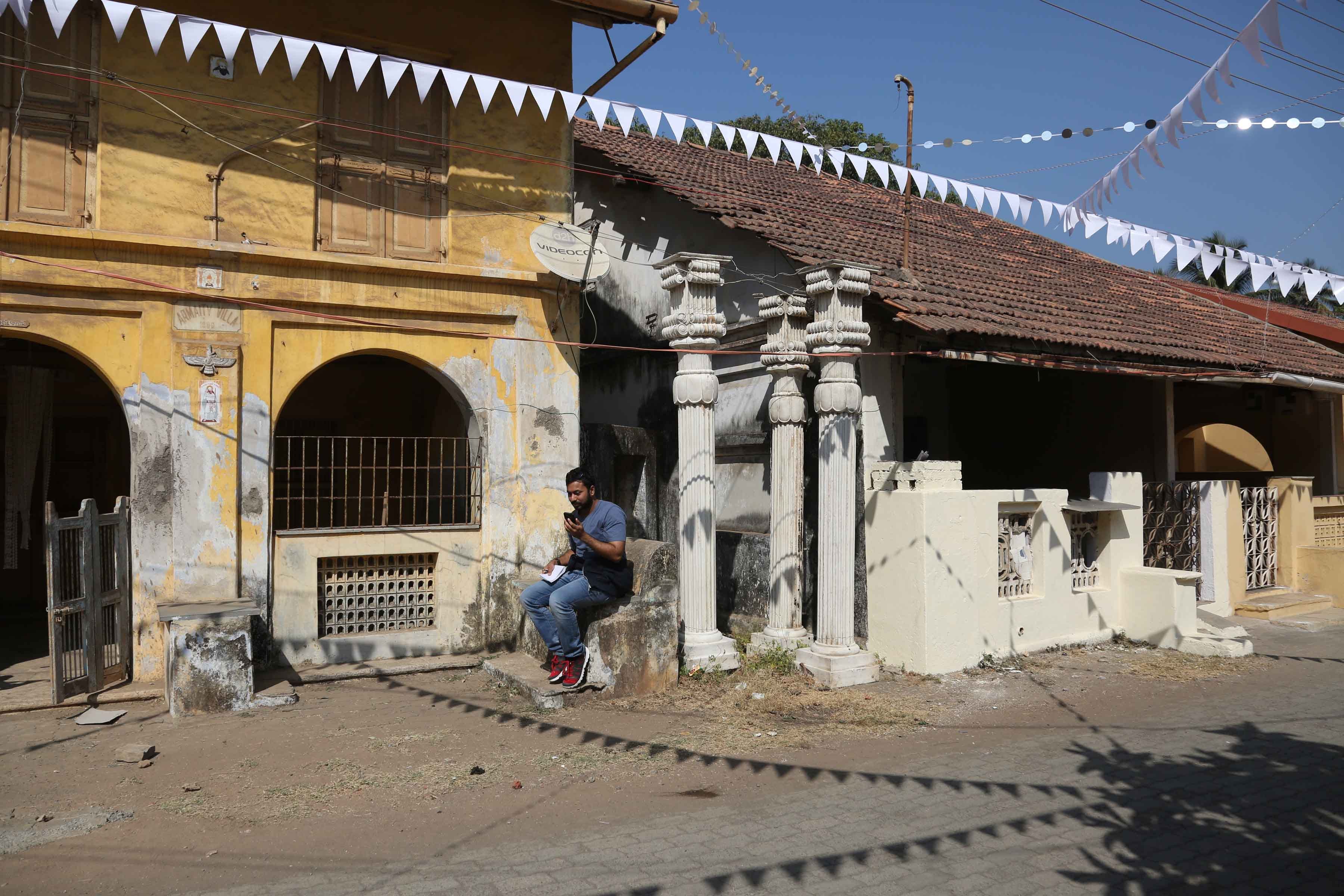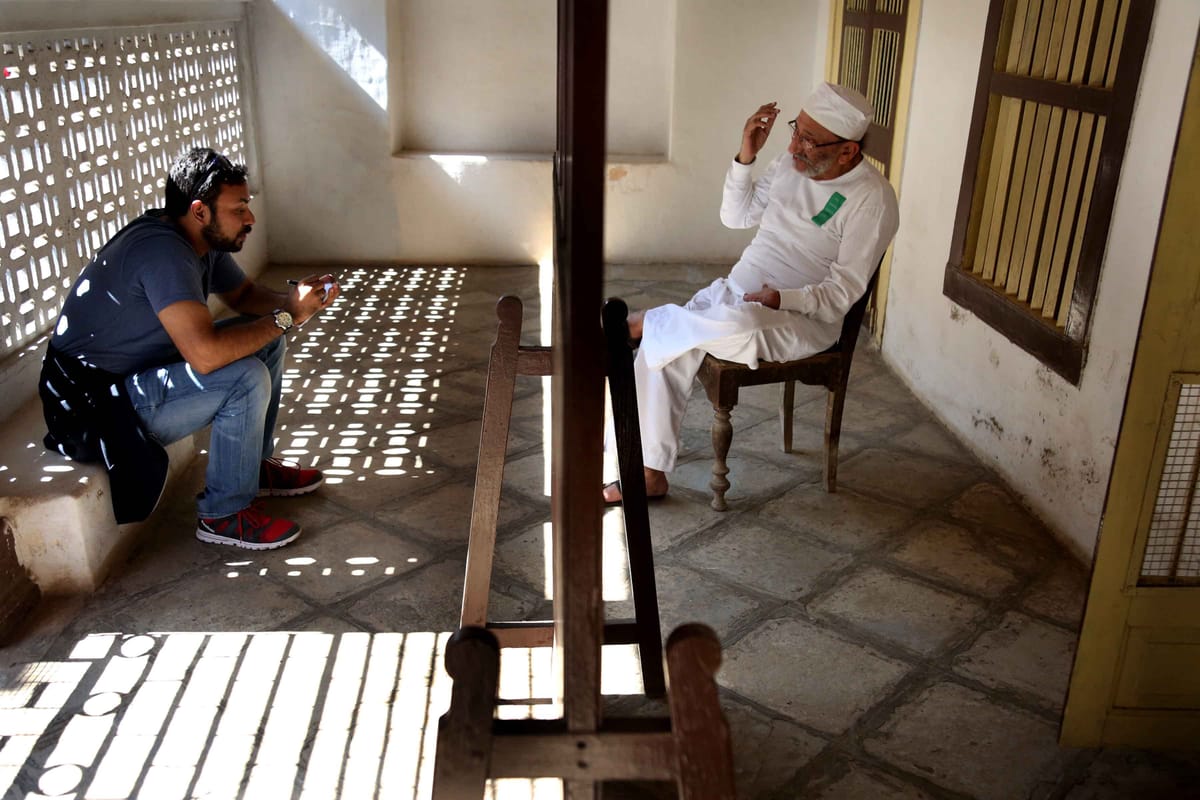What does it take to be a legal reporter? We reached out to one of our friends, Aamir Khan, who graciously answered our questions over email.
"Most orders carry a legal and technical weight that a reporter needs to simplify for the readers," he told us. "In my experience, stories with human elements do really well when explained in simple terms. The explanation need not be separate from the story. It has to be the story!"
For years, Aamir has been covering courts for newspapers like The Times of India, The Indian Express and The Asian Age. He recently joined Bar & Bench, a digital publication covering law and lawyers, as Associate Editor. You can read his stories here.
And here's the full interview:
In Old News: How did you get into legal reporting? Is it something you were always interested in, or was it by chance?
Aamir: I was working on the desk in a national daily some time in 2013, when I was asked to report on the Bombay High Court. I had always wanted to be a reporter and had been trying to convince my bosses that I was innately a reporter. After much convincing, they also got fed up, and told me to start reporting from courts.
So, to answer the second part of your question, it was purely by chance. It was also very challenging as I had no prior experience in the legal field - both as a legal practitioner or as a journalist. Legal reporting is often called a “niche” beat but I was fortunate to have got the chance to do it.
In Old News: To what extent did your school/college prepare you for what would be expected of you? How much did you have to learn on the job?
Aamir: From a personal experience, I feel journalism cannot be taught within the four walls of a college or a school classroom. Yes, writing skills could be enhanced in classrooms, but an instantaneous decision, perhaps, when you have to stop talking to someone sensing a risk element, or move out of a tense situation, can only be learnt on the job.
I feel reporters learn and unlearn everyday on the job. So it is essentially learning on the job that the classrooms cannot teach. All my skills, learning, developed on the job and from my interactions with the experts in the field.

In Old News: How is reporting for start-up newsrooms different from reporting for an organisation like TOI?
Aamir: Each platform comes with its own sets of demands and culture. Newspaper reporting is inherently different from a web platform, where reporters work real time. I find the latter quite interesting and progressive.
After a decade in newspapers, when I decided to move to a digital platform, honestly, I was a little apprehensive. However, I actually find it quite convenient when there is a news break or a judgment, and I can write about it at that very instant. So a faster reach to the audience is what keeps news alive according to me. Also, nowadays there is a lot of information to feed the reader/listener with, as there is always a breaking or evolving story. We are beyond a time when one had to wait till the next day for a news report. News is out as when it happens. So it is only wise to keep up, and find creative ways to report a story. In my case, a legal story.
In Old News: When you first started reporting on courts, what surprised you the most?
Aamir: I think the challenge to track a story that evolves right from the bottom of the judicial hierarchy to the top, and the multiple lawyers in between, is surprising as well as unique when it comes to covering legal cases.
In Old News: Is access to sources/chambers something you constantly have to work on? Or does it get easier over time?
Aamir: Access gets better with time in terms of the interactions and meetings one has with a source. For example, during my reporting days in Bombay, I made sources and was in regular touch with at that point in time. However, as I moved cities, that communication was over. But that didn’t come in the way of getting information when I reconnected with my sources. So it is essential to build sources and also keep in touch with them.
Visiting chambers is a good way to build sources. It is ok to feel awkward or shy in visiting chambers but there is no harm trying. Ultimately, we need to keep in mind our job is to meet as many people as we can. Even if the source is not a good mood and ask you to leave, they will remember you the next time you meet them.
Building sources is constant work. As a reporter, the more sources you have in your basket, the chances of getting information, quotes or tip offs, improve immensely.
In Old News: Based on your experience, has the court system in India changed? If yes, how and at what pace?
Aamir: I think a lot has changed in every sphere in the last decade or so. Judiciary is no different. We saw some unprecedented developments in the recent past and I think every day brings a surprise. One needs to adapt and evolve with the ever-changing times to survive.
The pandemic, especially, showed us another dimension to the existing judicial system. Last couple of years in particular have seen a different face of judicial system - be it the medium of hearings or the limitations - we found ourselves in.
There have been changes in the nature of cases as well. I saw a lot many defamation cases being filed and heard in the last few years than ever before. Social media could be a major reason behind it as allows access to information/disinformation.
In Old News: Are there certain things about court proceedings that you feel like you have to explain every time you write a piece?
Aamir: Oh! So many. In reality, I try to break down every order or judgment to the very basic level of understanding in my head. It helps when I am writing the story. I try and imagine a person in front of me who doesn’t understand confusing legalese.
Most orders carry a legal and technical weight that a reporter needs to simplify for the readers. In my experience, stories with human elements do really well when explained in simple terms. The explanation need not be separate from the story. It has to be the story!
In Old News: How was going remote during COVID? Any incidents that stuck with you? (like Zoom-bombing poor connectivity issues?)
Aamir: Court reporting during Covid times is both good and bad. Virtual hearings took away the physical element or what we call “colour copies” from a particular hearing in courts. But the advantage has clearly been easy access to courtroom proceedings and accurate reporting. With headphones, one could follow the proceedings closely and carefully.
There have been instances where reporters, including me, were kicked out of online meeting rooms and poor connectivity and technical glitches marred the hearings.
Physical hearings have positives for reporters especially when you are meeting sources face-to-face and incorporating tone and tenor of lawyers and judges in stories. With masks on, the human element has evaporated.
In Old News: You've recently undertaken some law studies. Has that helped you with your work? Or did reporting on courts help more with your studies?
Aamir: Reporting helped me in understanding the legal beat better. It has solely been the experience of reporting and meeting legal practitioners and experts that helped me survive in this circuit. Comprehension comes with the experience in the field of legal reporting, I feel. No book can teach you how to write a story or answer a question.
In Old News: Is there a set career path for legal reporters? What should newbies expect from the field?
Aamir: Some really good web portals reporting on legal issues have gained prominence and immense traction in the last few years. Being niche, in an already niche arena, makes them unique. There is a lot of scope for legal reporters as there is a dearth for good legal reporters in newsrooms even though they don’t realise it on many occasions.
Sometimes, newsrooms want other beat reporters to dabble in legal reporting which I think should be avoided.
If I remember correctly, when I was asked why legal reporting during the first big break in my career, I had said that the legal beat was the only beat that encompasses everything else. I think for the young legal reporters the stage is set. There is a lot happening in the legal circuit that needs to be exploited and with the new ways of reporting, it would only be an exciting ride.
If you'd like to share your journalism experience, or you'd like to suggest who we should interview next, reply to the newsletter or reach out at editor@inoldnews.com

